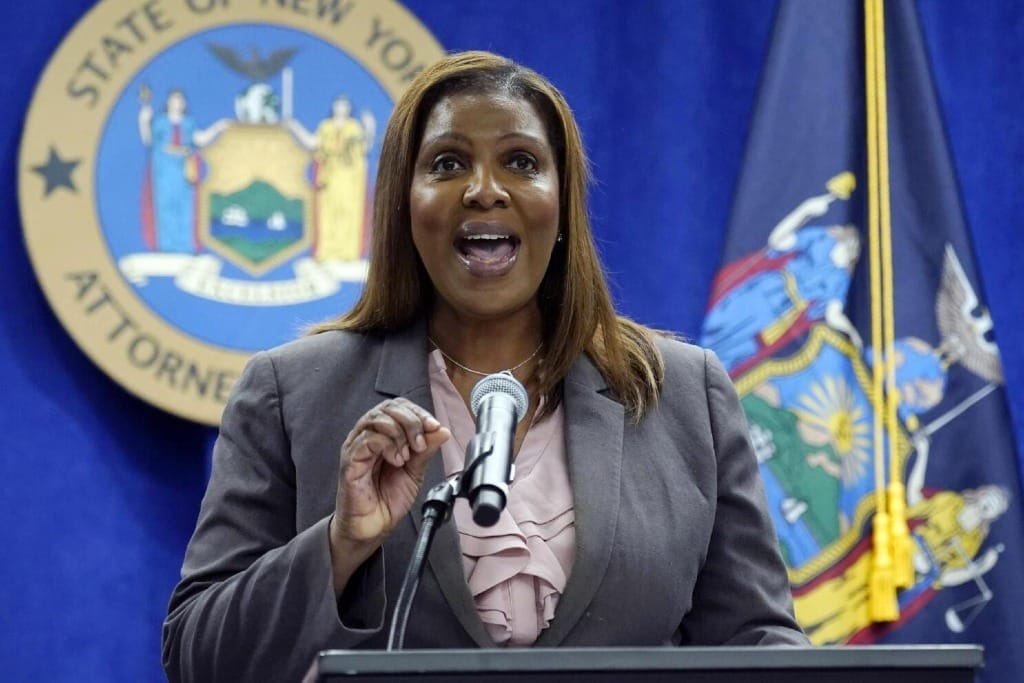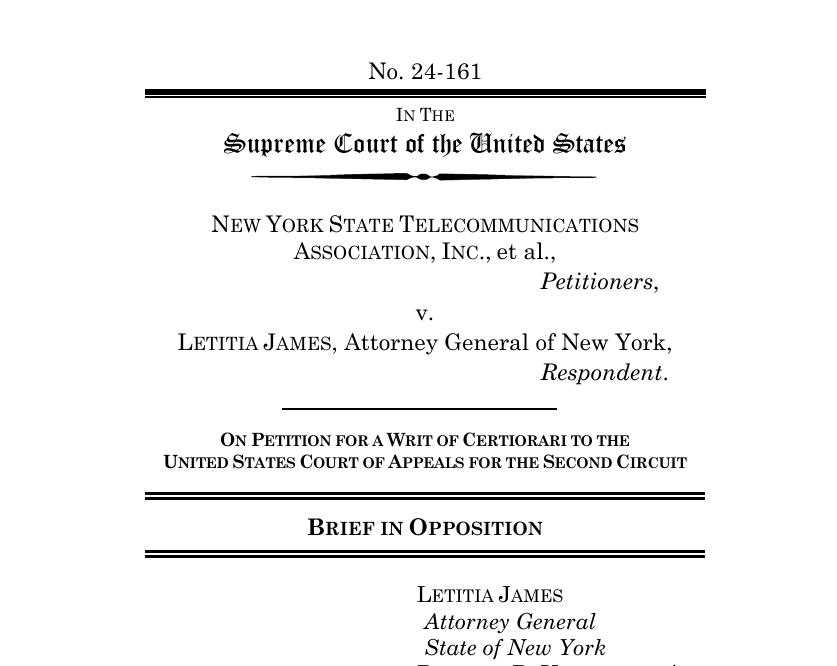N.Y. Attorney General Wants Supreme Court to Back Off State Law
Says high court should allow N.Y. to enforce the Affordable Broadband Act, which requires 25 Mbps for $15/month or 200 Mbps for $20/month
Jericho Casper

WASHINGTON, Oct. 17, 2024 – New York state is urging the Supreme Court to toss out a challenge to its 2021 law that requires Internet Service Providers to offer low-cost plans to low-income New Yorkers. Much of the case centers on the legal classification of ISPs and the scope of state power under various readings of federal law.

N.Y Brief Opposing Supreme Court Review of State Law
New York Attorney General Letitia James has fought for the power to oversee ISPs, claiming her state has not been preempted by federal law. If the Supreme Court agrees with James and declines to take the case, New York has promised to begin enforcing the law.
In a brief filed Wednesday, James urged the Supreme Court to reject a petition filed in August by ISPs’ seeking the high court’s review of a lower court’s ruling in favor of New York's Affordable Broadband Act.
 Broadband BreakfastState Broadband
Broadband BreakfastState Broadband
James' brief argued that the ISPs’ petition should be denied for several reasons:
- The case is a poor vehicle for addressing the preemption issue, as the Federal Communications Commission's classification of broadband services is currently in flux.
- The Second Circuit’s ruling does not conflict with any other circuit court decisions.
- The decision does not raise any significant nationwide concerns, as the ABA is a specific consumer-protection regulation, not a broad public-utility-style regulation.
- The ruling is legally sound because Congress did not express a clear intent to preempt state regulation of broadband as an information service.
In April, a panel of the U.S. Court of Appeals for the Second Circuit in Manhattan ruled that the ABA was not preempted by federal law.
“The decision does not conflict with any decision of another court of appeals, or any other court. To the contrary, two other courts of appeals agree with the Second Circuit that federal law does not broadly preempt state regulations of Title I information services,” the petition signed by James stated.
In her brief, James emphasized that the ABA was not about regulating rates in a traditional sense, but rather a form of consumer protection designed to ensure low-income residents have access to essential broadband services. James argued that the law does not interfere with the broader rate-setting authority of ISPs.
Under the ABA, ISPs need to offer low-income consumers a basic service plan of 25 Mbps for $15 per month or 200 Mbps for $20 per month. Small ISPs may seek an exemption.
ACA Connects, CTIA, and the New York State Telecommunications Association, along with other industry groups, have been challenging the law, arguing that the FCC’s 2018 order classifying broadband as a Title I information service, restricted state-level regulation of broadband pricing. The ISPs initially succeeded in blocking the ABA in the U.S. District Court for the Eastern District of New York.









Member discussion